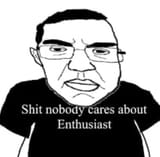Search Results
7/26/2025, 2:53:37 PM
7/25/2025, 4:12:59 PM
>>716405706
This narrative choice made the game point the main spearhead of "Tu Chuan" to Zhang Xianzhong's uprising army (although there were indeed atrocities in the early days, the historical community had great controversy over its later behavior and death toll in Sichuan) and the Southern Ming army (there were also many outstanding generals like Li Dingguo and Liu Wenxiu who insisted on resisting the Qing Dynasty and protecting the country and safeguarding the people).This way of handling seems thin and distorted to players who know that history.
Perhaps the Chinese version of this work can be understood from a semi-abstract perspective, saying that "there is no power of the Qing Dynasty in the setting."
Although literary and artistic creation on historical themes has room for artistic processing and fiction, creators bear special responsibilities when it comes to core events of national collective traumatic memory.Avoiding key perpetrators, especially those who actually bear huge guilt in history, and focusing the main critical firepower on the internal conflicting parties, this narrative framework, whether intentionally or not, objectively constitutes a distortion of historical truth and injustice to the memory of the deceased.It weakens the deep roots of historical suffering, simplifies its complex causes, and may even inadvertently cater to some narrative tendency to try to downplay a particular historical culprit.This is not a demand for games to become a history textbook, but the expectation that when building such a heavy historical background, it can reflect basic respect and prudence for the basic historical context and collective memory of the nation.
In addition, from the perspective of players, I hope that the player group’s attitude towards adapting Chinese history from domestic and foreign works, and should not silently accept the rough or even distorted adaptations of Chinese history by foreign manufacturers, but bravely make their own voices
This narrative choice made the game point the main spearhead of "Tu Chuan" to Zhang Xianzhong's uprising army (although there were indeed atrocities in the early days, the historical community had great controversy over its later behavior and death toll in Sichuan) and the Southern Ming army (there were also many outstanding generals like Li Dingguo and Liu Wenxiu who insisted on resisting the Qing Dynasty and protecting the country and safeguarding the people).This way of handling seems thin and distorted to players who know that history.
Perhaps the Chinese version of this work can be understood from a semi-abstract perspective, saying that "there is no power of the Qing Dynasty in the setting."
Although literary and artistic creation on historical themes has room for artistic processing and fiction, creators bear special responsibilities when it comes to core events of national collective traumatic memory.Avoiding key perpetrators, especially those who actually bear huge guilt in history, and focusing the main critical firepower on the internal conflicting parties, this narrative framework, whether intentionally or not, objectively constitutes a distortion of historical truth and injustice to the memory of the deceased.It weakens the deep roots of historical suffering, simplifies its complex causes, and may even inadvertently cater to some narrative tendency to try to downplay a particular historical culprit.This is not a demand for games to become a history textbook, but the expectation that when building such a heavy historical background, it can reflect basic respect and prudence for the basic historical context and collective memory of the nation.
In addition, from the perspective of players, I hope that the player group’s attitude towards adapting Chinese history from domestic and foreign works, and should not silently accept the rough or even distorted adaptations of Chinese history by foreign manufacturers, but bravely make their own voices
7/18/2025, 3:13:56 AM
Page 1

